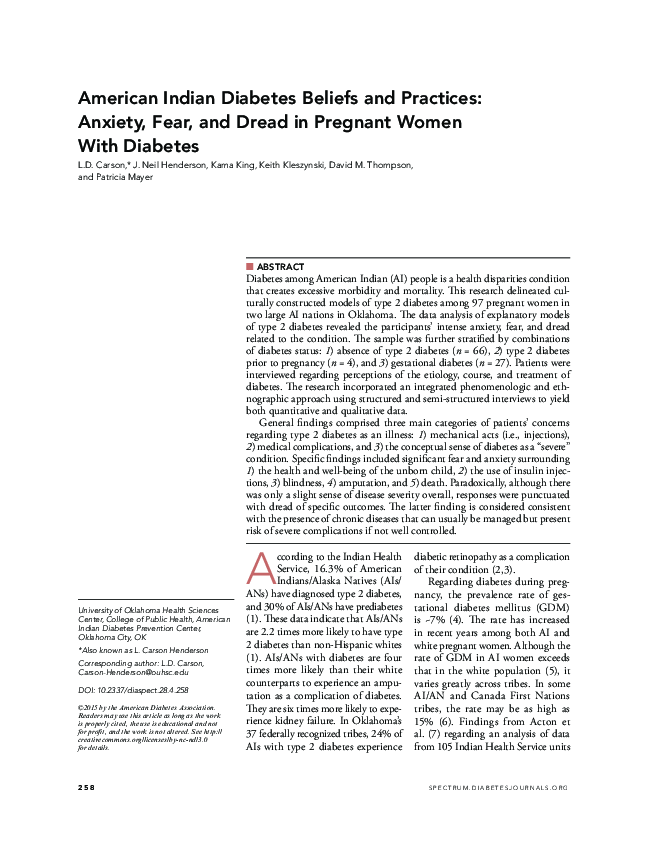American Indian Diabetes Beliefs and Practices: Anxiety, Fear, and Dread in Pregnant Women With Diabetes
Diabetes among American Indian (AI) people is a health disparities condition that creates excessive morbidity and mortality. This research delineated culturally constructed models of type 2 diabetes among 97 pregnant women in two large AI nations in Oklahoma. The data analysis of explanatory models of type 2 diabetes revealed the participants' intense anxiety, fear, and dread related to the condition. The sample was further stratified by combinations of diabetes status: 1) absence of type 2 diabetes (n = 66), 2) type 2 diabetes prior to pregnancy (n = 4), and 3) gestational diabetes (n = 27). Patients were interviewed regarding perceptions of the etiology, course, and treatment of diabetes. The research incorporated an integrated phenomenologic and ethnographic approach using structured and semi-structured interviews to yield both quantitative and qualitative data. General findings comprised three main categories of patients' concerns regarding type 2 diabetes as an illness: 1) mechanical acts (i.e., injections), 2) medical complications, and 3) the conceptual sense of diabetes as a "severe" condition. Specific findings included significant fear and anxiety surrounding 1) the health and well-being of the unborn child, 2) the use of insulin injections, 3) blindness, 4) amputation, and 5) death. Paradoxically, although there was only a slight sense of disease severity overall, responses were punctuated with dread of specific outcomes. The latter finding is considered consistent with the presence of chronic diseases that can usually be managed but present risk of severe complications if not well controlled.
Oklahoma OK


